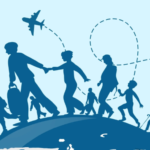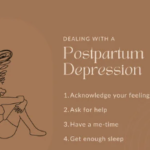In an increasingly globalized world, the migration journey can be fraught with challenges, particularly for Africans relocating to new countries. You may find yourself facing not only the complexities of adapting to a new environment but also the emotional and psychological toll that such a significant life change can impose.

This article will delve into the mental health challenges you might encounter as an immigrant, particularly in relation to autism, and will offer practical strategies for support from both your host country and your home government.
Understanding the Mental Health Landscape
As an African immigrant, you may grapple with a myriad of mental health issues. A study published by the American Journal of Public Health indicates that immigrants often experience higher rates of depression and anxiety compared to the general population.
This disparity can be attributed to several factors, including cultural stigma around mental health, lack of social support, and the stress associated with adapting to a new culture.
The stigma surrounding mental health, especially regarding conditions like autism, can be particularly pronounced in African communities. In Nigeria, for instance, many families may still hold misconceptions about autism, viewing it through a lens of shame or misunderstanding.
You might find that these cultural attitudes persist even after migrating, making it difficult to seek help for yourself or your loved ones.
The Impact of Autism on African Families
If you are navigating autism in your family, you may already be aware of the unique challenges that arise. Autism Spectrum Disorder (ASD) is often misunderstood, leading to feelings of isolation and hopelessness for both the affected individual and their families.
In Nigeria, the lack of awareness and resources can exacerbate these issues. A report from the World Health Organization highlights that only 10% of individuals with mental health conditions in low- and middle-income countries receive adequate treatment.
In contrast, as you settle into a host country, you may discover more resources and support systems available for individuals with autism.
However, the transition may still be overwhelming, and the cultural divide can make it hard to feel truly at home. This duality—of finding support yet still feeling isolated—can significantly affect your mental health.
The World Health Organization article titled “Mental Health and Forced Displacement,” published on August 31, 2021, highlights the significant mental health challenges faced by migrants and refugees.
The article pointed out key challenging experiences from stressors throughout their migration journey, which impacted their well-being and access to care. Here are three key points from the article that underscore the importance of addressing mental health needs in the context of forced displacement:
Mental Health Challenges:
Migrants and refugees face increased risks of mental health disorders such as depression, anxiety, and PTSD due to various stressors encountered during pre-migration, migration, and post-migration phases, often compounded by lack of access to mental health services.
Barriers to Care:
Many migrants and refugees encounter significant barriers to accessing healthcare and support systems, including legal, social, and economic challenges, which disrupt continuity of care and hinder their overall well-being.
Importance of Support Systems:
Protective factors like social support, employment opportunities, and access to education can mitigate mental health risks, highlighting the need for inclusive programs and policies that address the mental health needs of migrants and refugees for better integration and community contribution.
Bridging the Gap: The Role of Community Support
Community support is essential for overcoming the challenges associated with migration. Adeola Dorcas Folorunso, a registered nurse and advocate for mental health in both Nigeria and Canada, experienced this firsthand during her early days in Canada.
She recounts how her first few months were emotionally demanding as she adjusted to life away from family and familiar support systems. Adeola emphasizes the importance of community support groups, religious institutions, and educational establishments like the University of Saskatchewan, which provided her with vital resources and a sense of belonging.
You, too, can seek out local community networks that cater specifically to immigrants. These groups often provide not only emotional support but also practical resources, such as access to mental health services and information about local autism resources.
Consider reaching out to organizations like the African Canadian Association or local immigrant support groups to connect with others who understand your journey.
Strategies for Mental Health Support
Your host country has a critical role to play in facilitating mental health support for immigrants. Advocating for policies that prioritize mental health services tailored to the unique needs of immigrant populations is essential.
Initiatives like culturally sensitive training for healthcare providers can help create an environment where you feel understood and supported.
The Canadian Mental Health Association suggests increasing funding for community programs that focus on mental health for immigrants, which can significantly enhance the quality of support available.
For Home Governments
Your home country also bears responsibility in this regard. African governments can work to reduce the stigma around mental health and autism by implementing awareness campaigns and improving access to mental health services.
It’s crucial for them to create connections between diaspora communities and local support systems.
For instance, Nigeria could develop partnerships with organizations abroad to facilitate resource sharing and cultural exchange that would benefit families dealing with autism and other mental health issues.
Building Resilience: Practical Tips for Immigrants
If you are finding the transition to a new country challenging, here are some practical tips to help you build resilience:
- Seek Community Support: Don’t hesitate to join local immigrant organizations or online support groups. Connecting with others who share similar experiences can help reduce feelings of isolation.
- Access Mental Health Resources: Familiarize yourself with mental health services in your area. Many communities offer free or low-cost counseling services specifically designed for immigrants.
- Engage in Open Conversations: Whether with family or friends, discussing your feelings can help alleviate stress. Remember, you are not alone in your struggles.
- Educate Yourself About Autism: Understanding autism and its implications can empower you to advocate effectively for your loved ones. Resources like the Autism Society of America offer valuable information.
- Be Proactive in Seeking Help: Don’t wait until you feel overwhelmed to ask for help. Promptly reaching out to support systems can prevent feelings of hopelessness.
Adeola Folorunso’s story exemplifies the importance of community support in navigating these challenges. She actively participates in outreach programs, emphasizing that “no man is an island.” Her efforts, including organizing health summits and free dental outreach for children with autism, illustrate how community engagement can foster resilience and well-being.
Conclusion
As you navigate the complexities of life in a new country, particularly if you are dealing with autism or other mental health challenges, it’s essential to remember that you are not alone.
By fostering connections within your community and advocating for better support systems, you can create a network that not only uplifts you but also others in similar situations.
In a world where mental health often remains a taboo subject, your voice and experiences can help bridge the gap between home and abroad, fostering a supportive environment for future generations. Reach out, seek help, and remember resilience is built together.



















